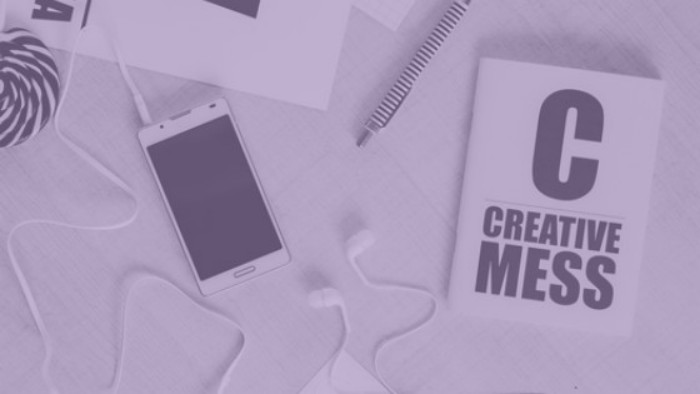Meet our team member Cheri! In Cheri’s guest post, she shares helpful tools to handle life’s unexpected changes so that your creativity (and peace of mind) can continue to flourish.
Change has been my teacher for the past few months, triggering me. Sometimes I crave it, feeling frustrated it’s not happening quickly enough. Sometimes I resist it, wanting the current moment to last forever.
What’s been most revealing is watching how my inner relationship to change impacts my creative flow as an artist.
As a professional musician with a master’s degree in Spiritual Psychology, I love exploring the connections between mind, body, and creativity. Your creative flow is directly related to how you handle change.
Here’s an example: imagine a jazz trio improvising or a singer performing live. In these moments, we as performers embrace the “now” and flow with whatever we’re feeling. At our best, we connect with the audience in a sacred way.
If, on the other hand, we resist change—if we judge ourselves or try too hard to control the audience’s reaction—we also restrict our awareness of the creative flow. Our performance might feel stiff or distracted.
Because change is constant and linked to our creativity, there’s an added incentive for creative people to learn how to handle change gracefully.
What People Usually Do: Judge and Try to Control
How we tend to handle change is that we judge it and attempt to control circumstances that aren’t within our power.
If you label a change “good,” “bad,” or “not happening quickly enough,” you feel the negative impact of those judgments as feelings of frustration and negativity.
It’s so tempting to say, “Oh, if only that thing/person/situation would change, then all my problems would be solved.” Feelings of righteousness come up and we allow ourselves to blame others, the music industry, or the situation at large. Then the ego attempts to force change (control) or feels hopeless (like a victim).
Your emotions get in there too, reinforcing the judgments and control pattern with limiting beliefs that feel true to us:
–I must or else I’ll die.
–No one will love me if I don’t _____.
–It doesn’t seem possible.
–I’m a failure if ______ does/does not happen.
–If they don’t like my work, they must not like me as a person.
As an artist, you’re probably more aware of your emotions than most other people. Your sensitivity is a gift that opens you to creativity, but can sometimes feel like a curse in other areas of life. Control is a protective mechanism that provides a temporary sense of power, but also brings about an unintended consequence:
Control blocks your awareness of the full measure of the creative flow.
Whenever you long for the past, try to force future change, or judge the present, you tend to feel out of touch with the joy of creativity… which feels like another loss on top of everything else.
All this together can lead to a psychological spinout where everything is wrong, and you feel helpless and frustrated. It’s a vicious cycle.
Unfortunately at the extreme, this common story has lead to the untimely deaths of many talented artists—that’s why I’m passionate about sharing some solutions.
How to Handle Change Gracefully
It seems counter-intuitive, but the best way to handle change is to release your attachment to what you want things to look like, relax into the present moment, and come into gratitude for “what is.”
Don’t beat yourself up if you notice yourself attempting to control things you have no power over. One of my teachers said that “control is the master addiction” and a key feature of the ego. It takes time, practice, trust, and maturity to practice surrender.
Most of the time, the circumstances surrounding change are out of your control anyway.
That’s not to say that you should just sit back and do nothing if you don’t like what’s going on. I’m just recommending that you focus on action steps that are within your power.
The bad news and good news is that your power of influence is primarily within yourself: your attitude and behavior.
Practice identifying what’s in your power and what’s not. For example: You can call someone on the phone, but you can’t control when or if they call you back.
You can go to an audition, but you can’t control if they cast you or not. So, do your best with what you know you can do.
Another active thing you can do is explore and observe your thoughts and emotions, without judgment. What beliefs do you have? What is the resulting emotion? Does that belief feel expansive or constrictive?
This inner work can make a huge positive difference in how you view your world. A life coach or therapist may be helpful if it’s hard to do this inner work on your own.
Do your best to relax. Relaxation allows receiving. Gratitude for the present moment allows receiving. You can’t receive with clenched fists.
When you are in a receptive state of being, it’s more likely that the desired change will have the space to show up in your experience. Plus, you just feel better!
Learning to adapt to change, to flow with “what is,” and refrain from judgments will help you feel more peaceful. The mental and spiritual muscle you develop in that process will also strengthen your awareness of your connection to the artistic flow. And that, should you choose to take it on, is a worthwhile exercise.
 Cheri Jamison is a professional singer, expert life coach for musicians, and team member with Cadenza Artists.
Cheri Jamison is a professional singer, expert life coach for musicians, and team member with Cadenza Artists.
A multi-talented entrepreneur at heart, Cheri loves sharing her knowledge of business, spiritual psychology, conscious artist development, and creativity through transformational coaching, writing, and speaking. Connect with Cheri at www.CheriJamison.com.

